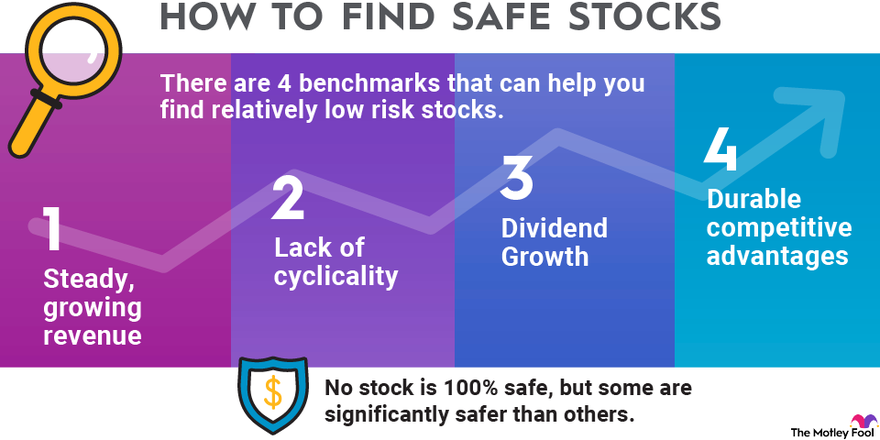Is 100% stocks too risky?

Is it OK to be 100% in stocks
“For younger investors far from retirement — or for those investing for legacy, a 100% stock portfolio could be a fit. “Of course, whenever investing, folks need to be focused on not only taking the right amount of risk — helping them stick with their investing plan — but also keeping costs low and being diversified.
Is 100% equity a good idea
The Case for 100% Equities
The main argument advanced by proponents of a 100% equities strategy is simple and straightforward: In the long run, equities outperform bonds and cash; therefore, allocating your entire portfolio to stocks will maximize your returns.
Why not invest 100% in sp500
Similarly, the index is made up of only stocks. When the stock market is experiencing a general downturn, there are no other asset classes (like bonds and REITs) to counterbalance that loss. This is why investing only in the S&P 500 does not help the investor minimize risk.
Are all stocks considered high risk
There are some stocks deemed overall less risky than others (e.g. large cap or blue-chip stocks). The SEC spells out some categories of stocks that may carry more risk. Shorter-term trading tends to be riskier than longer-term trading.
Is 70 stocks too much
So, unless your current portfolio is under-diversified or you find an attractive stock to invest in, you can keep investing in your existing stocks. It's okay for mutual funds to hold 60-70 stocks.
Is 150 stocks too many
“Owning 150 stocks or 350 stocks dramatically dilutes any ability you might have to beat the market without adding much in the way of diversification because you've already captured most of the benefits with your first 25 stocks.
What is the 4% rule for 100% equities
Origins of The 4% Rule
The authors found that a 4% withdrawal rate had a 98% chance of success with a portfolio of 100% stocks over a thirty-year horizon – this is one birthplace of the 4% Rule.
What does 100% equity mean
A 100% equities strategy is used by fund houses or individual investors to allocate all of the capital towards equities. The 100% equities strategy is generally utilised by mutual funds to purchase stocks based on the shareholder's investment.
How much will $10,000 be worth in 30 years
Focus on the long-term
If you can manage to earn a 10% return on your investment every year for 30 years, your $10,000 could grow to as much as $174,000—all without contributing another penny on top of your original investment. That's the magic of compound interest.
How much is $10,000 invested in Apple 20 years ago
As a result, $10,000 in AAPL stock purchased 20 years ago would be worth about $6.62 million today, assuming reinvested dividends.
How much of portfolio should be risky
You should put no more than 10% of your total net assets in high-risk investments, with the remainder diversified across a range of mainstream investments. Read our article about how diversification can work for your investments.
What type of stock is riskiest
Penny Stocks
The vast majority of penny stocks will instead provide you with substantial volatility, unpredictability, and big losses if you are not careful. Stocks that trade on OTC Pink market typically have little working capital and often provide scant information to investors about their financial condition.
Is 20% in one stock too much
How much company stock is too much Generally, if the stock of one company makes up more than 10% of your investments, it may be too much.
What is the 4% rule on $100000
Assume the following: You have $100,000 saved at retirement. You could take $4,000 per year of income for each $100,000 you have (that's 4% of $100,000). If you have $500,000 saved for retirement, that's $20,000 of annual income from your investments.
What is the 7% investment rule
Calculate your retirement savings goal.
To determine how much you'll need to save for retirement using the 7 percent rule, divide your desired annual retirement income by 0.07. For example, if you want to have $70,000 per year during retirement, you'll need to save $1,000,000 ($70,000 ÷ 0.07).
Is 20% equity good
Do I Need to Put 20% Equity as a Down Payment Many lenders and situations do not require a down payment of 20%. In order for a borrower to avoid private mortgage insurance, they must often have at least 20% equity in their home.
Can I save a million in 10 years
In order to hit your goal of $1 million in 10 years, SmartAsset's savings calculator estimates that you would need to save around $7,900 per month. This is if you're just putting your money into a high-yield savings account with an average annual percentage yield (APY) of 1.10%.
How to turn $500 K into $1 million
The time it takes to invest half turn 500k into $1 million depends on the investment return and the amount of time invested. If invested with an average annual return of 7%, it would take around 15 years to turn 500k into $1 million.
When was Apple worth $1 trillion
Aug. 2, 2018
Apple became the first publicly traded U.S. company to hit a $1 trillion market cap during intraday trading on Aug. 2, 2018. It hit a $2 trillion valuation just over two years later on Aug. 19, 2020.
Is Tesla a good stock to buy now
In a Nasdaq analysis of recommendations from 30 analysts, Tesla had a “buy” recommendation. Those analysts gave Tesla an average 12-month price target of $198.54, with a high target of $280 and a low target of just $85.
Should my portfolio be 100 stocks
In theory, young people investing for retirement should absolutely have 100% of their portfolio invested in equities. The biggest risk in the stock market is a crash which brings lower prices. Your best-case scenario as a young saver/investor is that you get to put more savings to work at lower prices.
Is a 50 stock portfolio too much
Can you over-diversify a portfolio Yes. Holding 50 stocks rather than 25 may lower your downside risk somewhat, but it can also reduce your profit potential. And at that point, it may be better to consider investing through an index fund, or even a combination of several sector-based funds.
Which stock is not risky
Dividend-paying stocks
Stocks aren't as safe as cash, savings accounts or government debt, but they're generally less risky than high-fliers like options or futures. Dividend stocks are considered safer than high-growth stocks, because they pay cash dividends, helping to limit their volatility but not eliminating it.
What is the safest stock industry
The Safest Industries to Invest InWhat Is a Safe InvestmentFast-Moving Consumer Goods (FMCG) Industry.Legal and Compliance Industry.Energy Utilities Industry.Water Industry.Healthcare Industry.Technology Industry.
How much will $100 000 be worth in 20 years
What will 100k be worth in 20 years If the nominal annual interest rate is 4%, a beginning balance of $100,000 will be worth $219,112.31 after twenty years if compounded annually.


